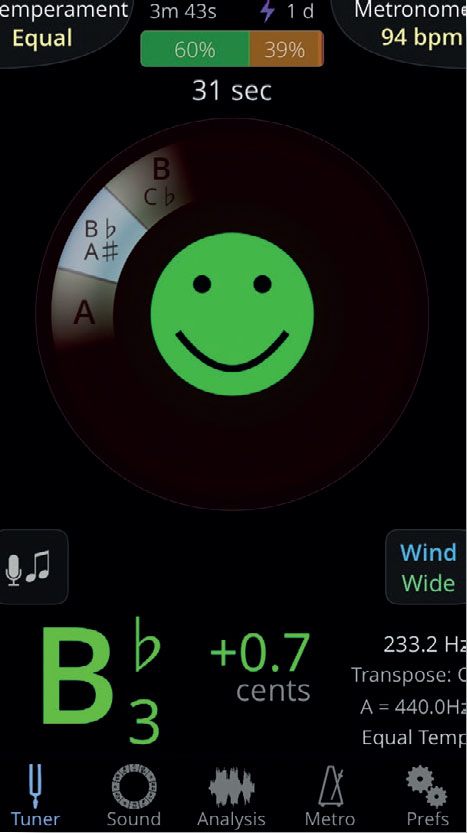
I've collected many teaching books over the years and seen them come and go. One that never leaves my bag is Team Brass (Faber Music). It's good for beginners and includes a CD with (passable) backing tracks. Once a pupil gets to the centre pages (playing a full scale of C) they're ready to tackle Grade 1 repertoire. Other books I use for young players include Abracadabra (Collins), Easy Winners (Brass Wind), Easy Jazzy ‘tudes (Warwick Music) and Look, Listen and Learn (De Haske). The latter has cartoons, brass facts and tunes with space for improvisation (a favourite is ‘Space Curl’ with a very groovy backing track).
I still have a bunch of play-along CDs in my bag but am finding it increasingly hard to find a CD player to use – my pupils say the same. More often, I play tracks from my phone through an amp or Bluetooth speaker. Backing tracks always go down well in lessons and can really help with the concept of playing in time. A YouTube channel I use regularly is by Jim Dooley, an American drummer who has recorded himself playing a groove on the drum kit in just about every style and tempo imaginable! Try playing ‘When the Saints Go Marching In’ (Team Brass) along with Dooley playing funk at 120 beats per minute, or slow rock at 90. It's great for feeling the pulse, starting at the right place in the groove and feeling like you're playing in a band.
I use several books published by the major exam boards. Trinity's Scales and Exercises books are useful, ensuring that technical aspects of brass playing, like lip flexibilities, are addressed (and yes – practised and examined). Trinity has recently released a set of books alongside its 2019–22 brass syllabus, which means you can buy one graded book containing all the exam repertoire. In addition, the piano accompaniments are included to download or stream from the Soundwise website; one login means the tracks are available from any device.
I enjoy teaching improvisation. It brings a creative element to playing and is an optional part of the Trinity supporting tests with various stimuli to choose from: continuing a melody, fitting with a harmonic progression or following a style. There is plenty of support on the Trinity website with examples to download and demonstration videos to watch. If you haven't tried this in your teaching I recommend having a go – it's great to get away from notation for a while.
ABRSM offers two examination routes and I use both depending on the pupil. It too offers grade books for each level, whether the traditional ‘classical’ route from the Shining Brass books, or the jazz route. I love the jazz repertoire; there are three sections in each book – blues & roots, standards, and contemporary, all with authentic backing tracks on CD. All the tunes have space for improvisation with a set of suggested pitches that will work come what may.
I also teach first access/whole-class ensemble teaching (WCET). I couldn't find any suitable teaching materials for this so I wrote my own – progressive tunes in a variety of styles designed to be taught aurally, with backing tracks (Are You Ready? published by Warwick Music). This material is designed for group teaching but also works with individuals and small groups, particularly those continuing after WCET. The backing tracks are available to download free from the Warwick website, so no need for CDs.
For more advanced pupils, some newer names have joined the essentials including Arban's Cornet Method (Boosey & Hawkes) and Clarke's Technical Studies (Volontè e Co). Allen Vizzutti is a virtuoso trumpet soloist who has written several books of technique and studies. Pieces from his 20 Dances for Trumpet (De Haske) are on the ABRSM and Trinity Grade 6 syllabuses. ‘Flamenco’, for instance, is written in an authentic style based on the Phrygian scale and includes flashy passages with some mellower sections.
Also try Paul Harris's Simultaneous Learning Practice Starters (Faber Music) – a set of cards full of ideas to kick-start a lesson: ‘Play your scales cheerfully/gloomily/as if you are sleepy…’. Or why not try an app? A current favourite of mine is Tonal Energy which has many features from metronome to tuner, drones and more. The tuner interface is very appealing – it is based on a smiley face that grows fuller as you sustain a note that is in tune! ABRSM also has a range of apps to help with scales, sight-reading, theory and aural.

The Tonal Energy app




